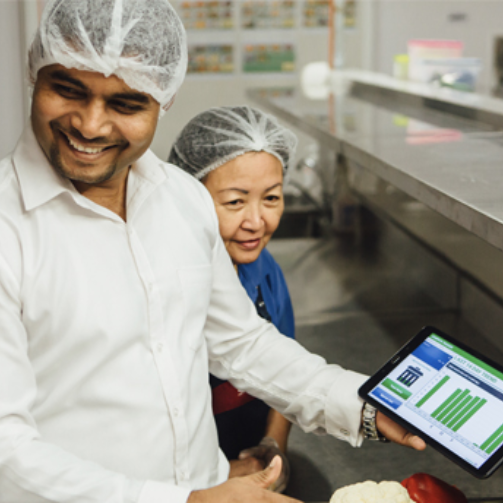Learn more about our pledge to corporate responsibility


A case study on sustainable cooking in institutional catering.
Chefs in commercial kitchens typically prefer gas appliances and stoves due to the precise temperature control, where they can adjust the flame instantly, which is useful when cooking multiple items simultaneously.
With gas accounting for around 20% of commercial kitchens’ carbon emissions and emitting potentially harmful substances from combustion, there are growing regulatory trends around the world to phase out gas stoves.
“Building and operating energy-efficient kitchens are key to sustainable food services, to meet both our clients’ and Sodexo’s sustainability goals. I would like to encourage others to switch to electric kitchens whenever possible. With the right SOPs, training and culinary adaptations, culinary teams can achieve similar production capacity and flavours as gas kitchens. The Sodexo at Airbus team consistently receives positive feedback on our food from diners. Electric appliances and stoves are also more futureproof, enabling an easier transition to energy sources cleaner than gas when they become available in future.”
Sodexo is the first food services company to commit to reaching Net Zero by 2040 globally, thus asserting its leadership in the sector when it comes to fighting climate change. The Group aims to accelerate its journey towards becoming the leader in sustainable food and valued experiences. Sodexo is accelerating a journey started in 2017 with the commitment to achieve a -34% reduction in carbon emissions by 2025, an objective approved by the Science-Based Targets initiative (SBTi).